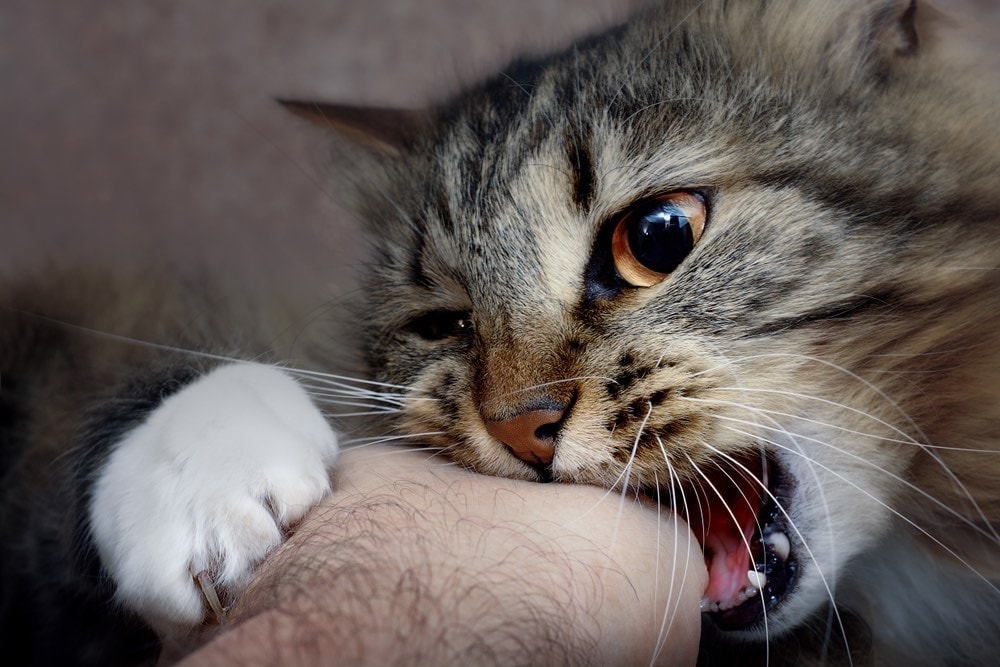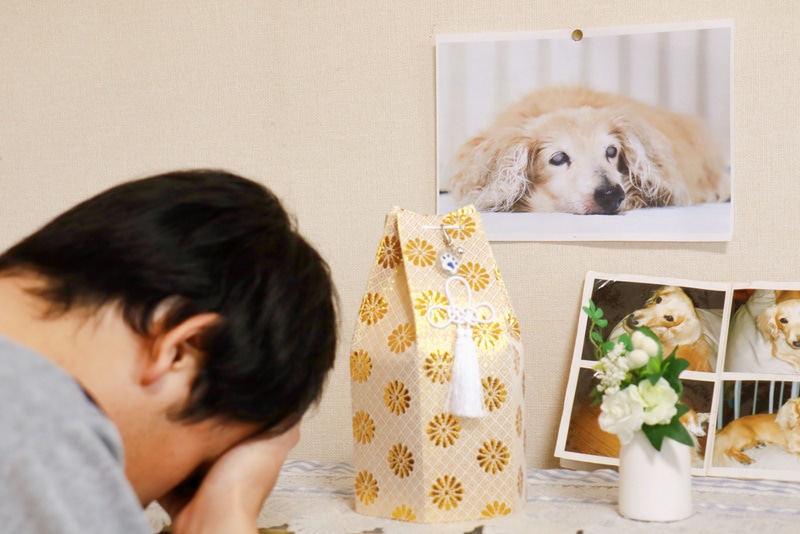My Cat Ate a Fly, What Should I Do? Vet Approved Advice
Updated on
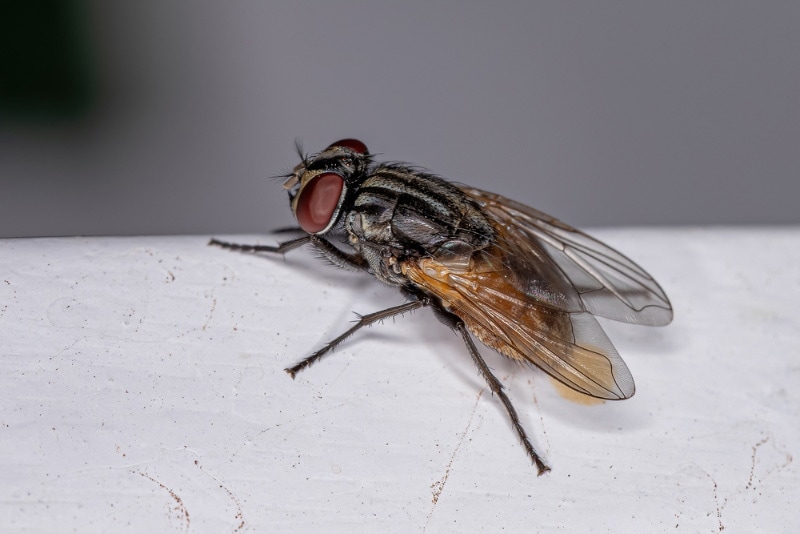
Cats are natural predators that will catch and eat all sorts of small critters. If your cat just ate a fly and you’re worried, the first thing to do is stay calm. There is no need to panic, and you definitely don’t need to feed them a spider to catch the fly!
If your cat is showing any signs of choking, vomiting, pain, or discomfort, an immediate visit to your veterinarian or emergency pet clinic is necessary. If, however, they swallowed a fly and seem to be okay, keep an eye on them for an hour or so. That way, if they have any sort of adverse reaction, you’ll see it and be able to respond accordingly.
When Can Eating Flies Cause Health Issues for a Cat?
Although the risk is relatively low, several health issues can be caused if your cat eats flies frequently. Below are some of the reasons that eating flies can cause health issues for a cat.
- Flies often come in contact with insecticides and herbicides. They can then transfer these poisonous chemicals to your cat and make them sick.
- Flies carry parasites that can infect your cat’s stomach, including the protozoaIsospora, which can cause vomiting and diarrhea in cats, particularly kittens or immunocompromised individuals.
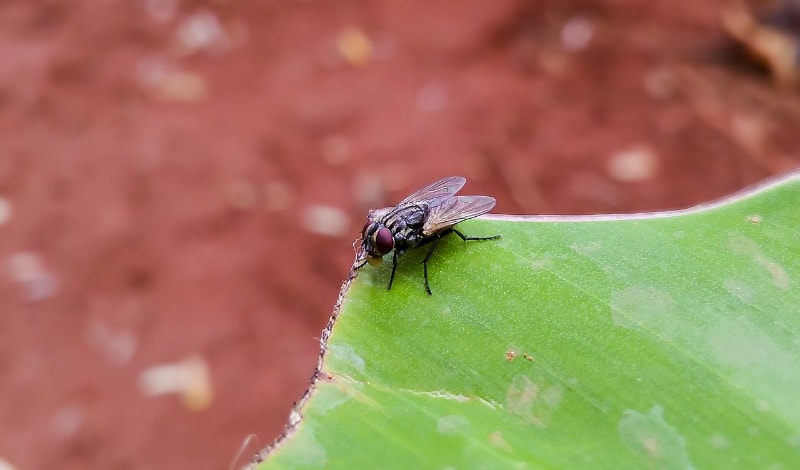
When Should You Take Your Cat to the Vet after Eating a Fly?
As we mentioned, if your cat eats a single fly and shows no signs of distress, there’s probably nothing to worry about. However, if your cat shows the following signs, it is essential to take them to your veterinarian.
- Diarrhea and vomiting that lasts more than 24 hours
- Salivating much more than usual
- Trouble breathing
- Problems with coordination
These signs could be linked to the fly they ate, or may be unrelated. Either way, these signs warrant a visit to the vet, and it is worth mentioning the fly.
What’s the Best Way to Avoid Cat Health Issues Due to Flies?
The best way to ensure your favorite feline has no health issues caused by eating flies is to get rid of the flies! Depending on where you live, that might be easier said than done, especially in southern areas of the United States. Below are a few of the best methods of keeping flies away so your cat won’t turn them into a snack.
- Clean up any poop in the garden as soon as you can. Feces is a huge attraction for flies.
- Dispose of garbage correctly and keep a lid on your outside garbage cans.
- Indoors, use fly traps to catch and kill flies that enter your home.
- If you don’t have them, place screens in all your windows, doors and vents.
- Plant some pet-safe insect-repelling plants in the garden and outside your windows, such as rosemary, catnip, basil or lemon balm.
- Avoid using citronella plants, oils or candles, as these are toxic to pets.
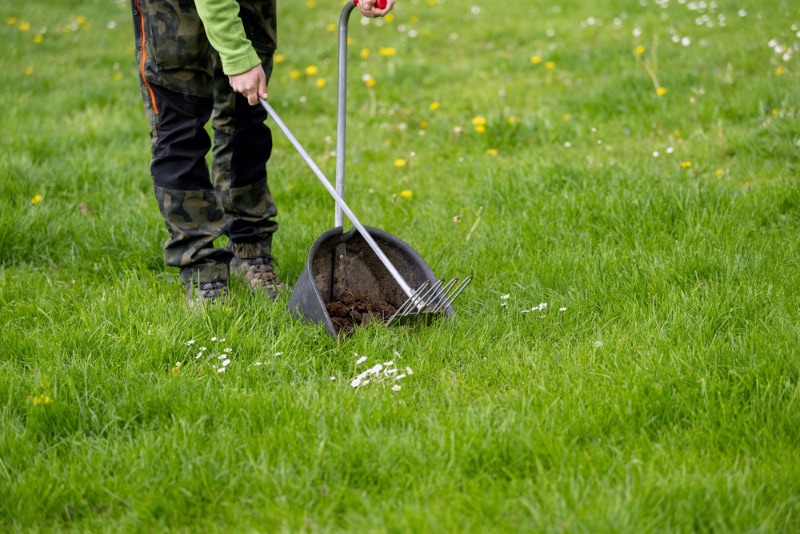
What To Do if Your Cat Is Constantly Eating Flies
The main question to ask here is “why”. Why is my cat eating so many flies? The main answers to that question are:
- Boredom – they don’t have another outlet to keep their minds and bodies occupied.
- Too many flies – if there are a lot of flies in your cat’s environment, their instinct will be to catch them.
If they are only catching the occasional fly, then this is likely just a healthy way for them to keep their hunting skills sharp and get some exercise.
How To Stop Your Cat from Eating Flies
No matter how hard you try, flies somehow find a way to get into your home. When they do, the methods below may help prevent your cat from turning the flies into a tasty treat.
- Spend plenty of time playing with your cat. Sometimes, cats chase and catch flies out of sheer boredom.
- Provide your cat with toys to keep them busy and divert their attention from flies.
- Install a cat shelf and scratching post to keep your cat occupied with other adventures.
- If you’ve made a catio for your cat, be sure to install screens to keep flies away.
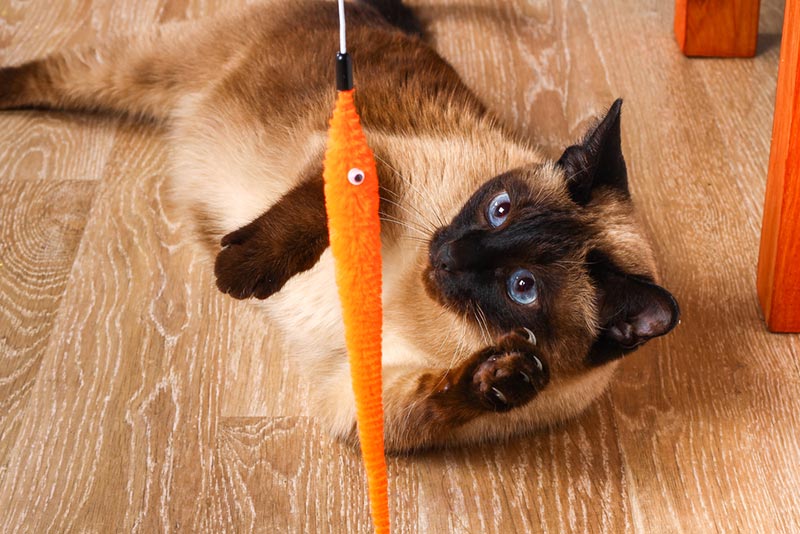
What Insects Can Harm Your Cat?
While it would take quite a few flies to harm your cat, other insects are more toxic or hazardous to their health. Cats often instinctively know which bugs to avoid, but there may still be occasions when they swallow the wrong thing. Below are a few that could cause them harm and should be avoided whenever possible.
Tiger Moths
This moth has orange and white stripes similar to its namesake. They’re toxic to cats and can cause mild to severe reactions if eaten. Fortunately, their patterned wings and sour taste make them unpopular prey for cats.
Bees
Apart from giving your cat a painful sting, some cats are allergic to bees. Although it is very rare, if your cat is allergic to bees and eats one, they could go into anaphylactic shock, so be sure to keep an eye out when bees are about.
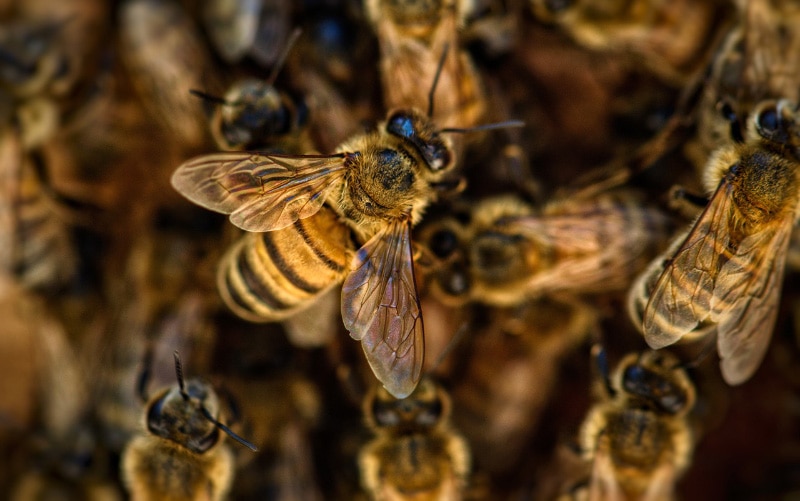
Cockroaches
Although cockroaches aren’t harmful to cats, similarly to flies, they sometimes carry parasites that can be transmitted to your cat.
Fireflies
Tiny fireflies might look harmless, but they have a potent toxin for self-defense that could make your cat quite sick if they ate one or more. If your cat starts to drool profusely, vomit, or experience diarrhea after eating a firefly, you should immediately take them to the vet.
Final Thoughts
In the vast majority of cases, if your cat eats a fly, there is no cause for concern. However, if your cat eats a fly and starts salivating, has trouble breathing, or becomes uncoordinated, you should immediately head to your vet.
The best way to deal with the issue of eating flies is to employ methods to reduce their numbers, and provide your cat with other activities to keep them healthy and enriched.
Featured Image Credit: Vinicius R. Souza, Shutterstock


